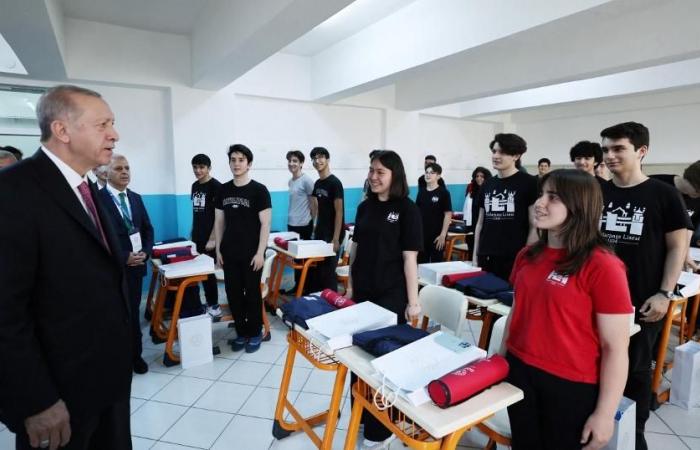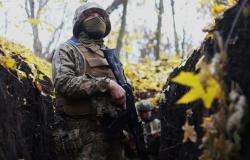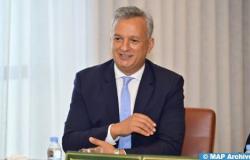Since October 2024, Turkish History programs have referred to “Central Asia” as “Türkistan”. The initiative, which responds to a request from the Ministry of Education, aims to strengthen Turkish identity in the region, but receives strong criticism, particularly from Russia.
The use of the term “Türkistan” has not been officially justified. It was above all the media close to President Recep Tayyip Erdogan and his far-right ally, the nationalist action party — the MHP — which did this justification work.
The objective of Russian policies of assimilation towards the Turkish states and peoples aims (…) to make these peoples foreign to their own land
Against the Russian “identity erasure policy”
According to their explanations, “Central Asia” is a Russian propaganda phrase to erase the long history of Turkic peoples in these regions. “The expression ‘Central Asia’ is part of the assimilation policies implemented for centuries by the Russian administration towards the Turkish states and people. The objective is to remove the word ‘ Türkistan’ of the language of the Turks and to make these peoples foreign to their own land”, believes Fikriyat, a leading publishing house for Turkish Islamic thought.
The publishing house recognizes, however, that the term “Central Asia” is not “wrong”. “But it is very important to promote the term ‘Türkistan’ in order to keep its rich history alive. It is a stance against the policies of identity erasure,” underlines Fikriyat. “Central Asia is a geographical term.”
Central Asia is a region located between the Caspian Sea in the west and the Gobi Desert in the east and covers southern Kazakhstan, Turkmenistan, Uzbekistan, Tajikistan, and Kyrgyzstan and Xinjiang in the north -western China.
External content
This external content cannot be displayed because it may collect personal data. To view this content you must authorize the category Infographics.
Accept More info
Advocating nationalism
The Turks do indeed originate from this region, but among the most nationalist, national attachment is coupled with an adherence to the pan-Turkist ideology: a much broader feeling of belonging to the great ethnolinguistic family of Turkic peoples. According to them, the cradle of this family, which is Central Asia, deserves the title of “country of the Turks” – the literal meaning of “Türkistan”.
This modification of the textbooks illustrates the increasing influence acquired by ultranationalist circles, thanks to eight years of alliance between Recep Tayyip Erdogan and the MHP.
>> To find out more about Recep Tayyip Erdogan’s policies, read: The major projects of Recep Tayyip Erdogan’s third term
“Erase” diversity
The initiative reflected in history textbooks is far from unanimous. Some teachers’ unions strongly criticized it, notably the main left-wing union, Egitim Sen.
According to Evrim Gülez, his education secretary, imposing the term “Türkistan” says a lot about the vision held by the government and the mission it attributes to national education. “The government has a standardizing concept that completely rejects differences… There are many nations, many languages and many religions in Central Asia. But the current power advocates a vision that erases all of this behind the sole standard of Turkish nationalism “, she confided at the microphone of Tout Un monde on Wednesday.
“In other words, the word ‘Türkistan’ is the result of a conception which rejects all those who are not Turks and which ignores all religions which are not of the Hanafi Sunni belief. Unfortunately, by saying ‘Türkistan “Instead of ‘Central Asian,’ the only thing we teach our children is nationalism,” she continues.
“Threat” to Russian interests
On Russia’s side, the media warmly welcomed the news, accusing Ankara of threatening Russia’s interests in Central Asia and even of wanting to form an anti-Russian “coalition”.
Pro-Russian circles in Türkiye — called “Eurasianists” — also did not welcome the initiative.
But these criticisms do not prevent Turkey from pursuing an increasingly active policy of influence in Central Asia through economic, military and cultural cooperation. The Russian invasion of Ukraine – which pushed certain Central Asian republics such as Kazakhstan to distance themselves from the Russian “godfather” – even seems to have given new impetus to Ankara’s Central Asian aims.
Anne Andlauer / juma






